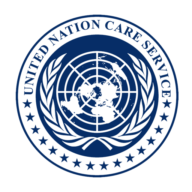Purpose and Activities
This is United Nations and Private Grant Foundations that issue billions of dollars in grant money to a variety of groups each year. Grants are awarded to individuals every day. Grant programs are not loans. You decide how much you need. As long as the amount is lawful and you meet the Foundations’ and government Agencies’ requirements, the money is yours to keep and never needs to be repaid. Grant money is non-taxable and interest-free. You can apply even if you have declared bankruptcy or have bad credit. You as a taxpayer, U.S. Citizens and Canadian Citizens, UK Citizens, Australia Citizens, and so on are entitled to apply for this free money. This program is Organized by United Nation Foundation’s to aim at maintaining standard of living for Senior Citizens, Self-Employed Workers, Retired, Semi-Retired, Widows, Farmers, Registered Nurses, Real Estate, Divorced, Disabled etc.We act as a strategic partner to help the UN mobilize the ideas, people, and resources it needs to deliver, and grow a diverse and durable constituency for collective action. We focus on issues at the heart of the Sustainable Development Goals, build initiatives across sectors to solve problems at scale, and engage influencers and citizens who seek action. Partnership, and the power of smart and strategic collaboration, is in our DNA. We believe everyone has a part to play, everyone’s voice should be heard, and everyone has a stake. As a strategic partner of the United Nations, we bring together fresh thinking and diverse voices around innovative ideas to drive progress and tackle problems. We build communities of support and nurture initiatives to advance the dignity and well-being of people and planet. Sometimes we work behind-the-scenes, shaping negotiations and connecting experts, advocates, and decision-makers. Other times we drive public awareness and involvement through communications, campaigns, and events. Always we work to build collective action through the UN, the only place where everyone on earth can benefit from it.
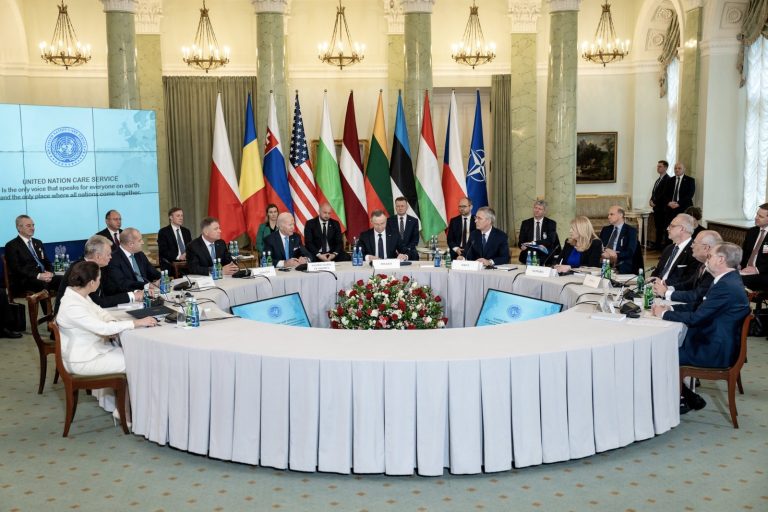
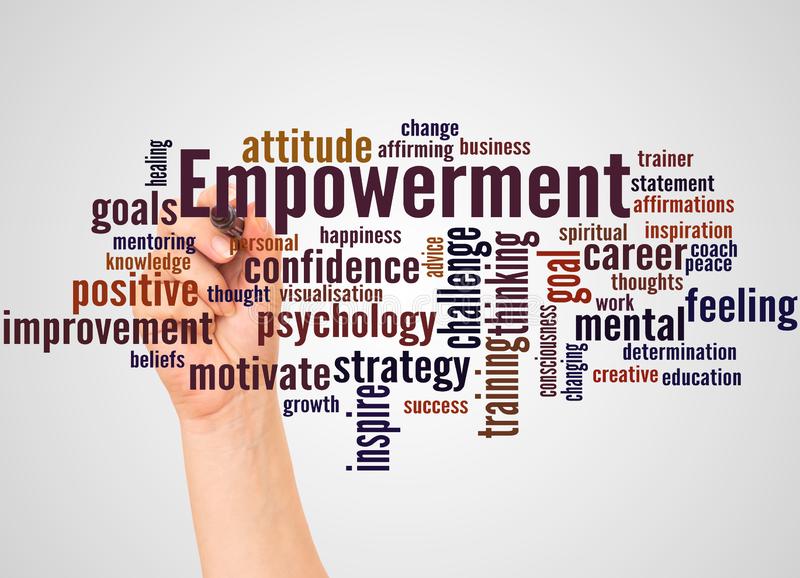
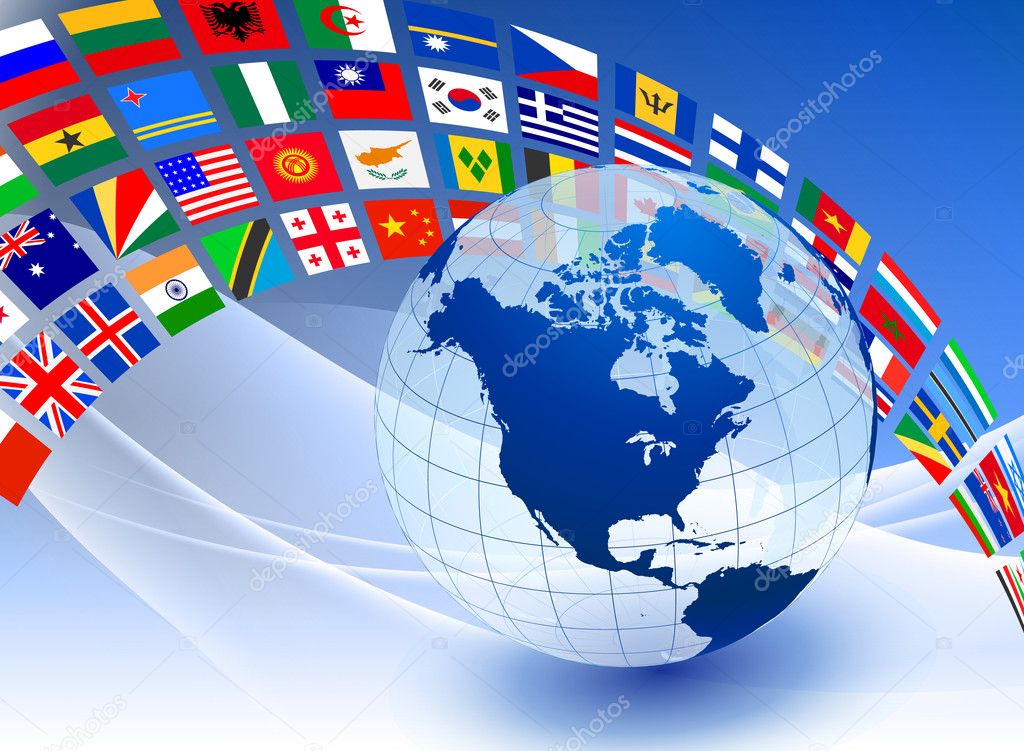
Background
Established in 1998 in NY – Founded by R.E. “Ted” Turner III, the businessman and activist who founded cable television network CNN in 1980, which became the first dedicated 24-hour cable news channel. Turner also founded the cable channels TNT (in 1998), and Turner Classic Movies (in 1994). In 1986 he established Turner Entertainment Co. to oversee film properties that he owned, and also started Turner Broadcasting System, Inc. (TBS) which is the company managing the collection of cable networks and properties he started in the mid-1970’s. In addition, Mr. Turner is the founder of The Goodwill Games, and in 1991 he was named Time Magazine’s Man of the Year. In 1998 he made headlines by announcing a $1 billion donation to the United Nations. Ted Turner has committed to The Giving Pledge, and has pledged to give away at least half of his wealth to philanthropy
We Are Beyond
As you know, each and every year BILLIONS of dollars are awarded to people and organizations, in the form of free-money and other types of funding. This money comes from all different sources including but not limited to state and federal agencies and through private corporations and foundations. Most people know this money exists, but just don’t know where to apply, how much they qualify for, or even where to get an application.
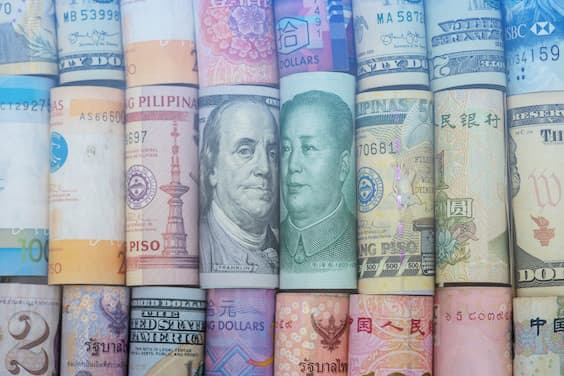
last 7 days
last 30 days
last 90 days
In 2022 the blows to global cooperation came hard and fast. Russia’s invasion of Ukraine not only threatened the lives of millions of Ukrainians and violated the UN Charter, but it also accelerated a series of cascading and interconnected global crises in food, fuel, and energy. COVID-19 continued to batter the world, and new data showed how devastating the pandemic has been beyond its overwhelming harms to our health. Misinformation and disinformation presented clear and present threats to the health of people, communities, and political systems around the world. After reaching record levels in 2021, concentrations of greenhouse gases continued to rise this year, and dozens of natural disasters — extreme heat waves, floods, hurricanes — contributed to record levels of humanitarian need. Extending their reach into households and pocketbooks, global crises left almost no one untouched. As the UN Secretary-General recently lamented, “Our world is facing the most pivotal, precarious moment in generations.” These crises will shape 2023 as the world continues to grapple with the widespread consequences of Russia’s invasion of Ukraine and COVID-19’s long tail. Yet the year ahead also offers a remarkable opportunity. As the midpoint on the journey to 2030, 2023 will hold a series of crucial reviews to assess where we stand against ambitious global agreements on sustainable development, climate change, gender equity, financing, natural disasters, and universal health coverage, to name only a few. Yet reviews alone won’t move the needle. Harnessing the opportunity will require an honest assessment of where we stand. The news will be overwhelmingly gloomy. But, taken together, these reviews will also offer a chance to build political momentum, ambitious new commitments, and inclusive coalitions to accelerate progress to 2030. In that sense, 2022 has built some strong foundations upon which the world can build to make the most of the year ahead. There is no time to wait.
Here are five key global issues to watch in 2023.
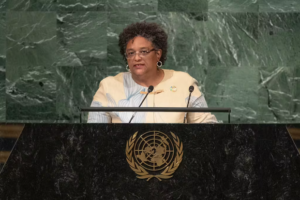 The COVID-19 pandemic has dealt a devastating blow to the SDGs, which were already off track before the pandemic forced the closure of schools, government services, and workplaces around the world.
The COVID-19 pandemic has dealt a devastating blow to the SDGs, which were already off track before the pandemic forced the closure of schools, government services, and workplaces around the world.
The pandemic erased more than four years of progress in eradicating poverty and pushed millions into extreme poverty. At current rates, 574 million people will still be living in poverty by 2030, nearly 7% of the world’s population, with most in Africa. Russia’s invasion of Ukraine has only worsened prospects, including by triggering global food shortages that disproportionately affected the world’s poorest people. Acute food insecurity has more than doubled since 2019. Developing economies are facing incredibly difficult choices as they struggle to manage rising food costs, the harms of climate change, and unsustainable debt burdens exacerbated by an inflation and liquidity crisis. The world’s poorest countries will likely be slapped with a 35% increase in their debt payments this year. It was this impossible situation that prompted Mia Mottley, the Prime Minister of Barbados, to call for major changes to the multilateral development and financing system through the creation of the Bridgetown Initiative.
Next year offers a series of key moments that together can serve to generate the leadership, commitments, and partnerships needed to bend the SDG curve. In March, world leaders will come together in the Qatar capital of Doha for the Fifth UN Conference on the Least Developed Countries to adopt a plan and articulate new commitments to support the countries that are furthest from achieving the SDGs. In July, at the High-Level Political Forum on Sustainable Development in New York, more than 40 countries will provide an update on their progress on the goals, but more importantly, the gathering will serve as a moment to rally SDG champions across sectors leading into the UN General Assembly in September. It is there that the world will also come together for the SDG Summit, marking the halfway point of the Sustainable Development Agenda. The second Global Sustainable Development Report, published by an independent group of scientists appointed by the Secretary-General, will be released in the lead-up to the summit. It will provide an assessment of where we are making progress on the Goals and the extent of the rollback, and it will offer evidence-based guidance for how the world can accelerate SDG progress. It will be crucial that leaders embrace the central commitment of the SDGs to leave no one behind and inject urgency to the start of the second half of the Sustainable Development Agenda.
September will also mark the halfway point of the Generation Equality Forum, a pathbreaking partnership on gender equality launched in 2021 and underpinned by $40 billion in commitments. But commitments and plans won’t lead to change if merely left on paper, so the Forum’s midpoint gathering will focus on increasing accountability and traction across the Forum’s work. Any effort to set the SDGs on the right track will hinge on renewed commitments to development financing, and leaders should come to next year’s high-level meeting on financing for development ready with new pledges. But crises this year have also given momentum to discussions on deeper reforms of the multilateral development finance system, as without such reforms the world will struggle to accelerate SDG progress. Prime Minister Mottley seeks to transform development finance to deliver for countries experiencing the triple crises of unsustainable debt, climate change, and inflation/liquidity through expanded lending, emergency liquidity for countries bearing unsustainable debt burdens, and the development of global systems to support countries experiencing a natural disaster or climate crisis. Spurred in part by her leadership, there is new energy in the push for World Bank reform. This focus on equity and justice could also generate momentum to give a greater voice to a larger number of countries during the review of International Monetary Fund (IMF) quotas set to conclude next December.
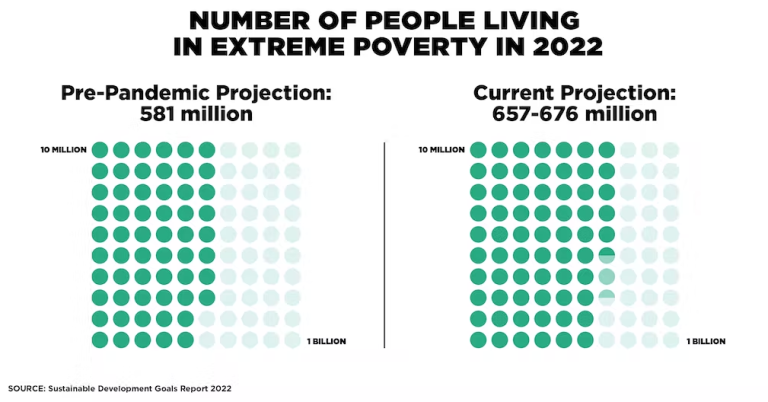
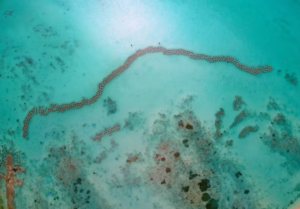 An important breakthrough for climate justice occurred at COP 27 in Sharm el-Sheikh, Egypt, with the agreement to establish new funding arrangements, including a “loss and damage” facility intended to provide support to countries already experiencing the consequences of climate change. This, combined with the launch of the Secretary-General’s Early Warnings for All initiative, represented important steps in 2022 to address the harms of climate change, which are disproportionately felt in developing countries. A series of important moments across the year generated new attention and commitments to advancing action to protect the world’s oceans. At the COP 15 on biodiversity, countries agreed to protect at least 30% of the world’s lands, inland waters, coastal areas, and oceans by 2030—amid tensions between some developed and developing countries.
An important breakthrough for climate justice occurred at COP 27 in Sharm el-Sheikh, Egypt, with the agreement to establish new funding arrangements, including a “loss and damage” facility intended to provide support to countries already experiencing the consequences of climate change. This, combined with the launch of the Secretary-General’s Early Warnings for All initiative, represented important steps in 2022 to address the harms of climate change, which are disproportionately felt in developing countries. A series of important moments across the year generated new attention and commitments to advancing action to protect the world’s oceans. At the COP 15 on biodiversity, countries agreed to protect at least 30% of the world’s lands, inland waters, coastal areas, and oceans by 2030—amid tensions between some developed and developing countries.
But these achievements came against a worrying backdrop. The Intergovernmental Panel on Climate Change (IPCC) confirmed this year that limiting warming to 1.5oC over preindustrial levels, the Paris Agreement target, requires emissions to peak before 2025 and be reduced by more than 40% by 2030. Yet, the World Meteorological Organization’s Provisional State of the Global Climate indicates that emissions are set to rise again this year. Major natural disasters in 2022, including devastating flooding in Pakistan, underscore the need for urgent progress on climate adaptation. The world will have an opportunity to show whether it is serious about addressing the harms of climate change at COP 28 next year, when countries are expected to agree to a new global goal on adaptation. COP 28 will also serve as the culmination of the first Global Stocktake on progress in implementing the Paris Agreement. Member States also gave themselves until COP 28 to agree to important details on how to establish the “loss and damage” facility negotiated this year. Difficult questions remain, including how the facility will be funded and allocated.
2023 will also serve as the midpoint check-in on the Sendai Framework for Disaster Risk Reduction. This review will focus on better understanding and addressing the systemic nature of risk and serve as an opportunity to rally political attention and ambition to reduce the risks posed by natural and human-caused disasters. Separately, negotiations will continue on a plastics treaty set to be agreed in 2024.
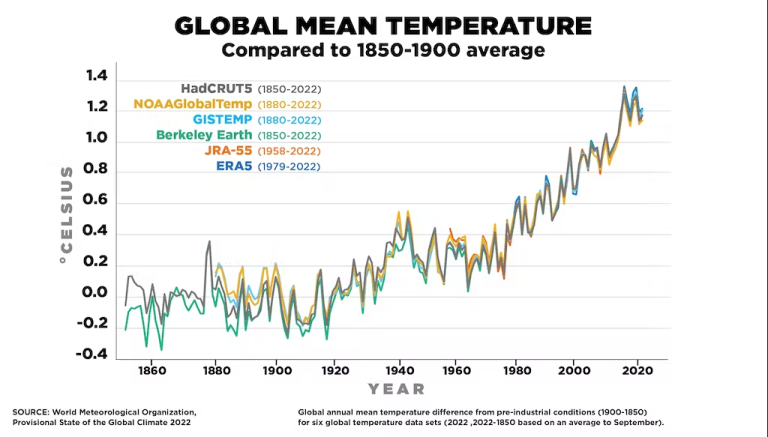
Incidentally, the amount of money given away by these entities each year can vary as well as the time of the year that the money is given away, so it’s important to check the date the application is due and when the money will be distributed. Many people think this money is given out at the beginning of the calendar year, and this is not the rule. Some entities give out money several times a year or even all year long depending on who is eligible and who is not.
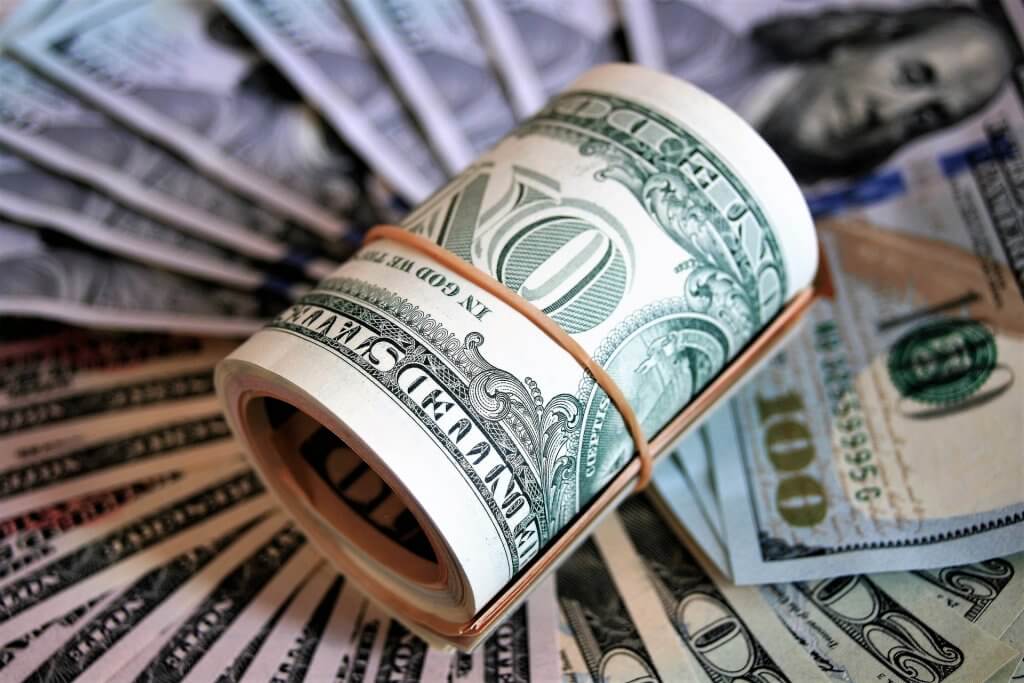
As you know our country has bailed out banks, investment firms, and other failing businesses in recent years. You need to also know that they are not the only ones giving out money. There are thousands of private corporations and foundations, who have money to help individuals and small businesses, too, through different types of funding programs! Funding programs have eligibility criteria, which an applicant must meet before a funding application will even be considered. USA Grant Applications was designed to give you the help you need to locate and apply for these funds because if you are like most Americans, you just don’t know where to start.
Where does the money come from?
As you know, each and every year BILLIONS of dollars are awarded to people and organizations, in the form of free-money and other types of funding. This money comes from all different sources including but not limited to state and federal agencies and through private corporations and foundations. Most people know this money exists, but just don’t know where to apply, how much they qualify for, or even where to get an application.
Incidentally, the amount of money given away by these entities each year can vary as well as the time of the year that the money is given away, so it’s important to check the date the application is due and when the money will be distributed. Many people think this money is given out at the beginning of the calendar year, and this is not the rule.
Some entities give out money several times a year or even all year long depending on who is eligible and who is not.
As you know our country has bailed out banks, investment firms, and other failing businesses in recent years. You need to also know that they are not the only ones giving out money. There are thousands of private corporations and foundations, who have money to help individuals and small businesses, too, through different types of funding programs! Funding programs have eligibility criteria, which an applicant must meet before a funding application will even be considered. United Nation Care Service was designed to give you the help you need to locate and apply for these funds because if you are like most Americans, you just don’t know where to start.
Government Grants Are There to Help You
Can you imagine what getting some extra money would feel like? That’s right, free extra money! Imagine what you can do if you win a big lottery, what you can do with the money you receive. Guess what, you do actually get free money handed out. This money being handed out is called a ‘grant.’ This money is categorized into many types; for example, if you need money for a business you need a Business grant. What we do at USA Grant Applications is help you understand how procedures to receive these grants work and make sure you’re in prime position to win one.
Government Grants
The United States Government is the one who hands out these grants . The government is the main source while there are also agencies at the state and local level for the same. The amount of federal programs that are present to help you out is staggering. They exist in almost every category and cater to a variety of individuals. These individuals are further classified into various categories. For example, if you’re a woman looking to a start a new business or grow one, you are eligible for Business Grants for Women. Along with Federal Funding, there are many private donors, corporations and foundations that are created for the same, professional and community groups who provide grant funding. That’s not all – many people are also eligible for certain scholarships. With that in mind, you only have to imagine the kind of vast resources available just for you! In fact, there might be funding or grants available for pretty much anyone! The sad part is that many people don’t even know about this. Many people don’t even realize that they’re eligible to receive money from both government and private sources. Also, many people aren’t really aware of how to go about things. That’s where we at USA Grant Applications come in. We make sure that you don’t have to run around looking for funders – government and private foundations, etc. We also make sure you understand what type of grants you’re eligible for. We take the time and effort required to ensure that you understand the proper procedures and opportunities available. That’s not all; we also help you writing grant proposals. You can apply for a variety of grants and may just win a few. With our guidance and help, you stand a very good chance of doing just that.
Sign up today!
The sad news is most people never apply for any kind of funding because they just don’t know “how” or “who” to apply to, not to mention the fact that they think it is too hard. It may be easier than you may think, but you will never know until you try, so what are you waiting for?
Contact Us
320 East 43rd Street, 3rd Floor New York, NY 10017
Contact Us
1750 Pennysylvania Avenue NW, Suite 300 Washington D.C. 20006
